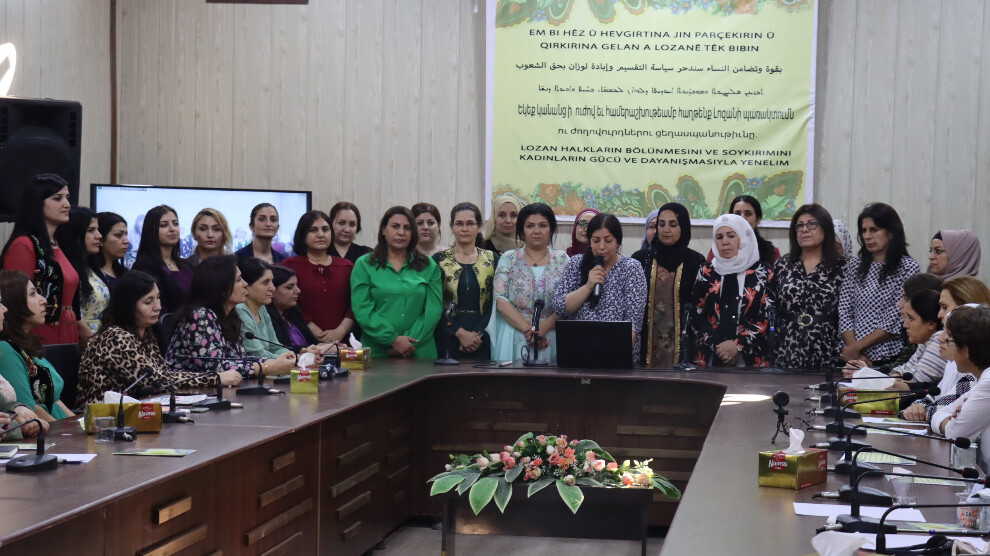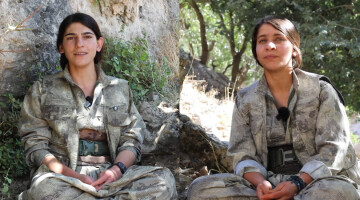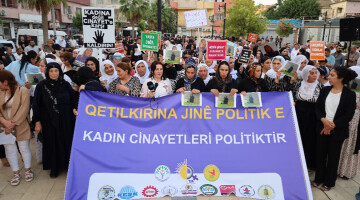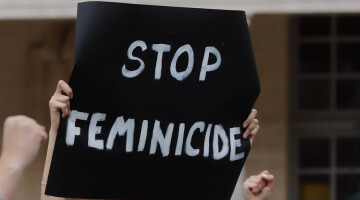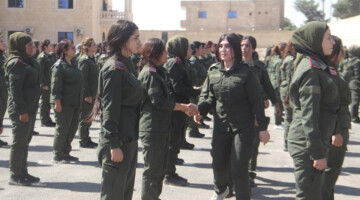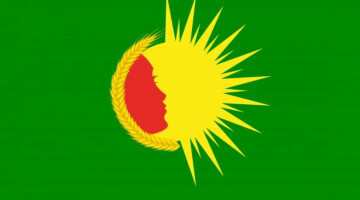Kongra Star, the Women’s Council of the PYD (Democratic Union Party) and the Women’s Council of Future Syria Party held a workshop in the northern Syrian city of Heseke on Thursday to discuss the Treaty of Lausanne and the destruction it has caused on its hundredth anniversary.
The workshop at the meeting hall of the Syrian Democratic Council (MSD) was attended by around 60 women politicians and representatives of women’s institutions, including MSD Executive Council President Ilham Ehmed, YPJ (Women’s Defense Units) Spokesperson Roksan Mihemed, AANES (Autonomous Administration of North and East Syria) Executive Council Co-President Bêrîvan Xalid and PYD Co-Chair Asya Ebdullah. Women academics, researchers and activists from Lebanon, Iraq, South Africa, Jordan and Egypt attended the workshop online.
The women's workshop under the title "With the strength and unity of women, we will overcome the division and genocide policies of Lausanne" ended with a final declaration.
"Nation state fuels racism"
Samira al-Aziz from the General Council of the Future Party of Syria delivered a statement underlining the multicultural nature of the population mosaic in the Middle East. Historically, she said, there has been a friendship and good neighbourliness between the different identities that is still alive today. However, with the nation state, racism has also grown, she added.
Regarding the importance of the Treaty of Lausanne, al-Aziz stated: "It was through the intervention of forces from outside that did not know the region, especially from Europe, that the borders of today's nation states were drawn. These borders do not correspond to the geographical or demographic reality in the region. When this system of nation states was created, on which today's borders are based, the will and perspective of the people who live there were disregarded. The Sykes-Picot, Sèvres and finally the Treaty of Lausanne a hundred years ago established these borders and fuelled racism. Because of the underlying concept of one nation, one language, one culture and one flag, there were numerous massacres and genocides in Mesopotamia, most of which were committed by the Ottoman Empire and later by the Turkish state. People were divided not only by arbitrary borders, but also by racist and divisive policies. Kurds, Yazidis, Armenians, Assyrians and other oppressed peoples were victims of these policies. In this way, the international powers played people off against each other for their own interests.”
"Women are at the forefront of the struggle against partition and genocide"
Al-Aziz continued: “The current situation in the Middle East is an expression of this policy. The nation-state system is being imposed on the people by force, although it does not suit them at all. This leads to conflict and war. Most of all, the women, children and poor in Lebanon, Syria, Armenia, Sudan, Iraq, Turkey and other countries become victims of these wars and conflicts. The international powers have tried to determine the fate of the people in the region with their agreements, but the people on the ground have not accepted this. There have always been uprisings and resistance against the oppression and tyranny that this situation brings. Women have taken their place at the forefront of the struggle against partition and genocide."
"Democratic confederalism is the only solution"
The women's revolution in Rojava and northern and eastern Syria represents an alternative to the politics of separation and genocide, said al-Aziz, pointing in particular to the role of the various women's movements, which show how women with different identities are self-organised and at the same time work together for the freedom of society. She added: "The idea of democratic nation and democratic confederalism is the only solution for the whole region with its wealth, culture, religion and diverse structures to live side by side in peace and freedom."
"The fight against racism and fundamentalism is our duty"
Al-Aziz further stated, "It is our task as women within the framework of the democratic nation to restore friendly relations and good neighbourliness with the people of the region who have been damaged by the nation-state system imposed by international powers. As women, we must take up the struggle against capitalist modernity and the ideological pillars of the nation-state, racism and fundamentalism, and work to establish a democratic system for the people."
The final declaration delivered by al-Aziz identified nine basic recommendations, which are as follows:
1. The role of women in the leadership of society must be strengthened to stop the attack on identity based on the spread of a culture of hatred and genocide. Women face forced assimilation, annihilation and alienation as they alone are the defenders of historical, cultural and social identity.
2. In order to deal with the consequences of the Treaty of Lausanne and to prevent the Treaty of Lausanne from being reopened in a new way and disrespecting the people of the region again, the people of the region, especially Kurds and Arabs, must form a unity.
3. It is not possible to overcome the identity crisis, genocide and alienation without developing unifying intellectual projects. The experiences in the Autonomous Administration of North and East Syria, based on the philosophy of a democratic nation and the brotherhood of peoples and the freedom of women, are remarkable and should be expanded.
4. Women must take their place in the centres of decision-making power.
5. A women's movement must be created at the level of the Middle East and a women's confederation must be built.
6. In order for the slogan "Jin, Jiyan, Azadî" [Woman, Life, Freedom] to spread throughout the world, women's achievements must be protected and passed on.
7) In order to stand against the policies against the region, women must strengthen their defence mechanism on the internal front at all levels.
8. The history of massacre policies against the people here must be exposed. The culture must be protected.
9. In order to make a women's coalition possible, Kurdish unity must be created. In this sense, a national congress of Kurdish women should be built.

